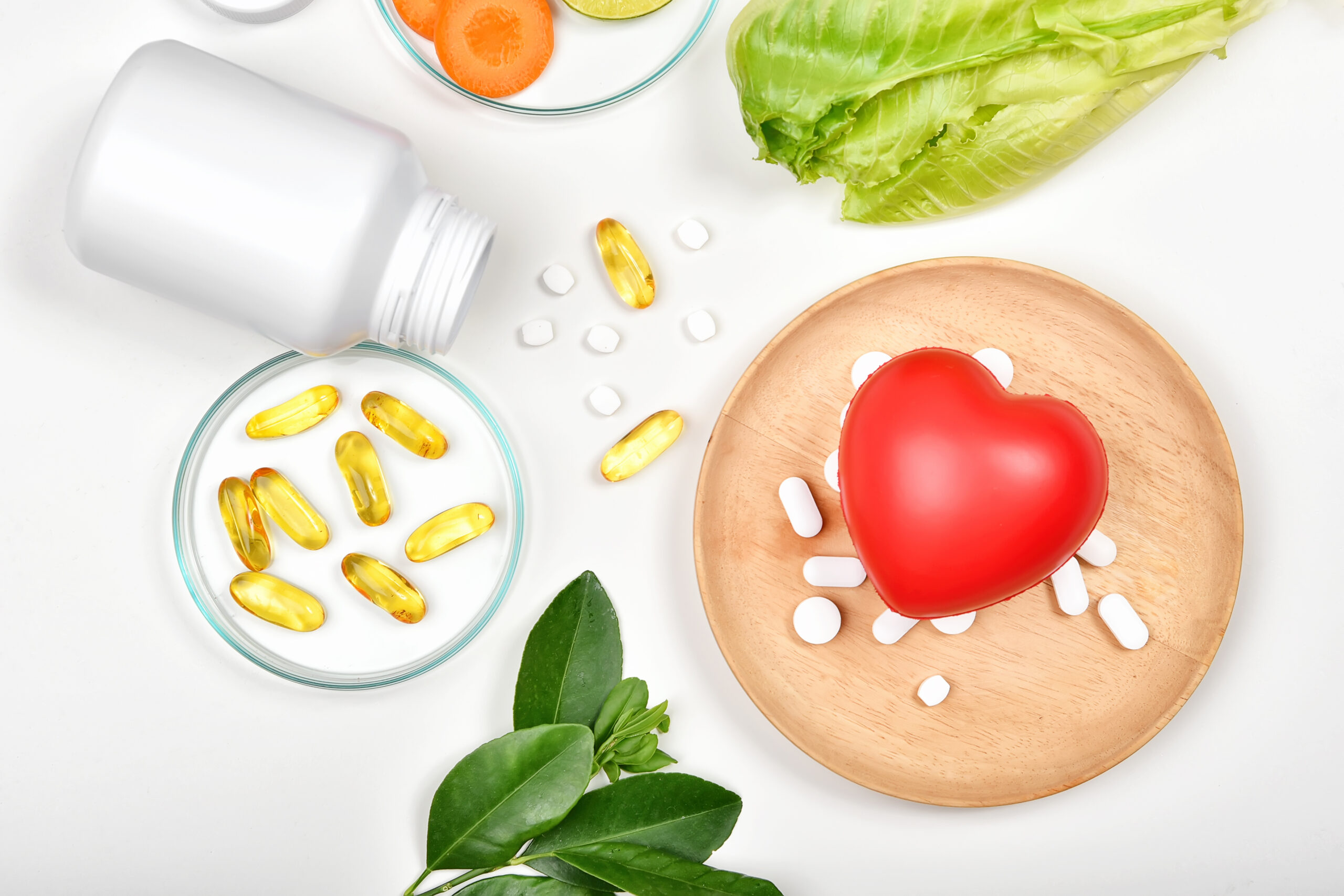Introduction: Maintaining a healthy cardiovascular system is crucial for overall well-being and optimal athletic performance. A combination of regular exercise and a balanced diet can go a long way in supporting cardiovascular health. In addition to exercise and a healthy diet, certain supplements and foods can provide added benefits by promoting heart health and enhancing workout performance. In this blog, we will explore some of the top supplements and foods that can support cardiovascular health and improve your workout routine.
- Omega-3 Fatty Acids: Omega-3 fatty acids are essential fats found in fatty fish like salmon, mackerel, and sardines. They have been extensively studied for their heart-protective properties. Omega-3s can help lower triglyceride levels, reduce inflammation, and support overall heart health. If you’re not a fan of fish, consider taking a high-quality fish oil supplement to ensure an adequate intake of omega-3 fatty acids.
- Coenzyme Q10 (CoQ10): Coenzyme Q10 is a naturally occurring compound that plays a vital role in energy production within the cells. It also acts as a potent antioxidant, protecting the cells from damage. CoQ10 levels tend to decrease with age, and supplementation can help support cardiovascular health. CoQ10 supplements have been shown to improve heart function, reduce oxidative stress, and lower blood pressure.
- Nitric Oxide Boosters: Nitric oxide is a molecule that helps relax and widen blood vessels, leading to improved blood flow. This enhanced circulation can benefit both cardiovascular health and workout performance. Nitric oxide boosters, such as beetroot juice or supplements containing L-arginine or L-citrulline, can increase nitric oxide production, leading to improved exercise endurance, reduced fatigue, and better overall cardiovascular function.
- Caffeine: Caffeine is a natural stimulant that can enhance both mental and physical performance. It stimulates the central nervous system, promoting alertness and reducing fatigue. Consuming caffeine before a workout has been shown to improve endurance, increase focus, and delay the onset of fatigue. Moderate caffeine intake from sources like coffee, tea, or pre-workout supplements can provide an energy boost for your workouts.
- Branched-Chain Amino Acids (BCAAs): BCAAs, including leucine, isoleucine, and valine, are essential amino acids that play a crucial role in muscle energy metabolism. They can enhance endurance by reducing muscle fatigue and promoting muscle recovery. BCAA supplements are commonly used by athletes and can be taken before or during exercise to provide a readily available source of energy for muscles. Additionally, BCAAs can help preserve muscle mass during intense workouts or periods of calorie restriction.
- Green Leafy Vegetables: Leafy green vegetables like spinach, kale, and Swiss chard are packed with nutrients that support heart health. They are excellent sources of vitamins, minerals, and antioxidants, including vitamin K, magnesium, and potassium. These nutrients can help regulate blood pressure, reduce inflammation, and improve overall cardiovascular function. Aim to include a variety of leafy greens in your diet regularly.
- Berries: Berries, such as blueberries, strawberries, and raspberries, are rich in antioxidants called anthocyanins. These antioxidants have been shown to reduce the risk of heart disease by improving blood vessel function, reducing inflammation, and protecting against oxidative stress. Berries are also a great source of fiber, which can help lower cholesterol levels. Add a handful of berries to your morning oatmeal or enjoy them as a snack.
- Dark Chocolate: Indulging in a small amount of dark chocolate with a high cocoa content can have heart-healthy benefits. Dark chocolate is rich in flavonoids, which have been associated with a reduced risk of heart disease. Flavonoids can help lower blood pressure, improve blood flow, and reduce the risk of blood clots. Choose dark chocolate with at least 70% cocoa content and enjoy it in moderation.
Conclusion: Incorporating these top supplements and foods into your routine can provide valuable support for cardiovascular health and improve your workout performance. Remember, however, that supplements should not replace a healthy diet and lifestyle. They should be used in conjunction with regular exercise and a well-balanced diet for maximum benefits. Consult with a healthcare professional before starting any new supplements, especially if you have underlying health conditions or are on medication. By prioritizing cardiovascular health and making smart dietary choices, you can pave the way for a stronger heart and a fitter body.
![310590701_421166140142246_8338605735780738422_n [Converted]](https://koshervitaminsblog.com/wp-content/uploads/2023/05/310590701_421166140142246_8338605735780738422_n-Converted.png)
